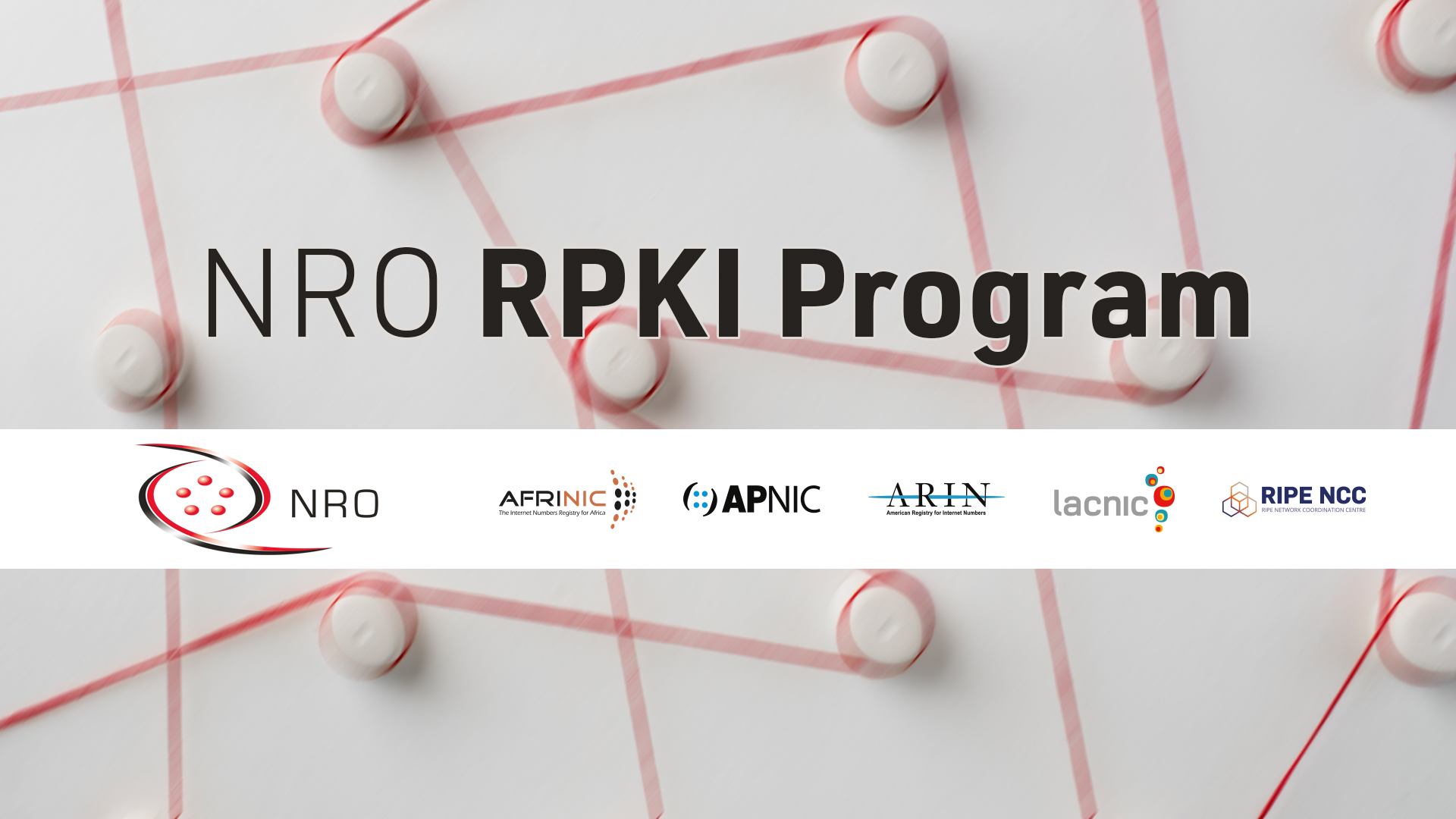
NRO RPKI Program: 2024 in Review
Earlier this year we launched the NRO RPKI Program and we shared information about the program’s purpose and the outcomes that were guiding our efforts. One of our main goals is to raise awareness among the technical community that we are committed to providing a more consistent and uniformly secure, resilient, and reliable Resource Public Key Infrastructure (RPKI) service.
An important outcome from this year’s work is the documentation of a problem statement for the current Trust Anchor configuration and the exploration of potential solutions. We hope to share a proposal for discussion with the technical community soon.
We also documented the RPKI services and features offered by each Regional Internet Registry (RIR), along with different aspects of robustness of the RPKI system, which brings together a breadth of knowledge about the current state of these elements for each implementation. Having consistent documentation in a single place allows us to see the variability among these implementations that currently exist.
Additionally, we wanted to learn more about the experience of managing resources across multiple regions to understand whether differences in RIR RPKI implementations are hindering Route Origin Authorization (ROA) creation. We conducted user research activities and invited network operators, who are responsible for IP space allocated by different RIRs, to share about any barriers they may have experienced when creating ROAs.
We are grateful to the 80 network operators who completed the survey, and we offer a special thank you to the 11 who volunteered to participate in interviews for a deeper dive into their responses.
The key learnings from the user research activities show we should focus on increasing the consistency of the RPKI user experience across regions, which will be one of our priorities for 2025. Additionally, we agreed on two other priorities: to work on a solution to the current Trust Anchor configuration to address the concerns of the technical community, and to offer more transparency on the robustness and security aspects of the RPKI system.
We look forward to continuing to work toward providing a more consistent and uniformly secure, resilient, and reliable RPKI service for the global Internet community and to receive valuable input from users.
Learn more about ARIN’s RPKI services at arin.net/RPKI.
Any views, positions, statements, or opinions of a guest blog post are those of the author alone and do not represent those of ARIN. ARIN does not guarantee the accuracy, completeness, or validity of any claims or statements, nor shall ARIN be liable for any representations, omissions, or errors contained in a guest blog post.
Recent blogs categorized under: RPKI
GET THE LATEST!
Sign up to receive the latest news about ARIN and the most pressing issues facing the Internet community.
SIGN ME UP →Blog Categories
Updates • Public Policy • RPKI • ARIN Bits • Fellowship Program • Data Accuracy • Security • Tips • Caribbean • Grant Program • IPv6 • Business Case for IPv6 • Internet Governance • Elections • Outreach • Training • IPv4 • Customer Feedback • IRR



